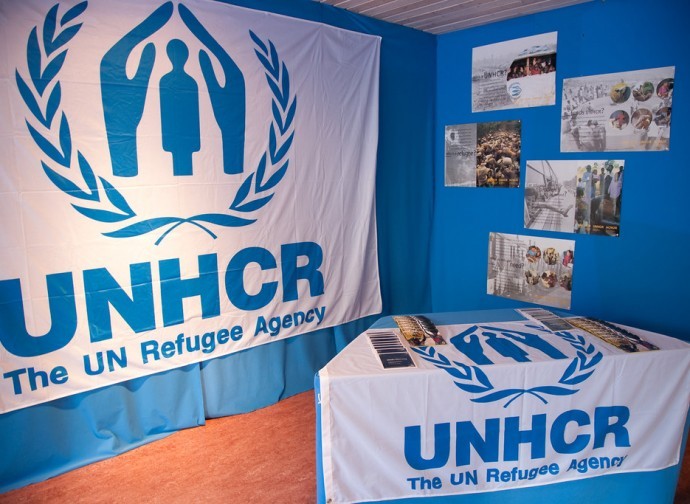Immigrationists should brush up on the Refugee Convention
On July 28, 1951 a special UN Conference approved the Geneva Refugee Convention. It clearly defines the rights and obligations of refugees and host states. Today, these terms are confused and also apply to economic migrants.

On July 28, 1951, a special UN Conference approved the Geneva Refugee Convention. A few months earlier, on 14 December 1950, the UN General Assembly established the High Commission for Refugees (UNHCR). For 70 years, the Convention has been a fundamental international legal instrument for defining who is entitled to refugee status and what their rights are. UNHCR undertakes to rescue, assist, protect and, as soon as possible, accompany refugees and stateless people in general in the process of returning home, including displaced persons and asylum seekers.
The best way to mark this anniversary is to recall what the Geneva Convention prescribes, who falls under the definition of a refugee and who must therefore be placed under UNHCR mandate.
The Convention grants legal, personal refugee status to a person who “owing to a well-founded fear of being persecuted for reasons of race, religion, nationality, membership of a particular social group or political opinion, is outside the State of his nationality and is unable or, owing to such fear, is unwilling to avail himself of the protection of that State”. That is what Article 1 says. The subsequent articles (45 in all) define the rights and duties of both refugees and the contracting states, of which there are currently 149 (Italy ratified it in 1955). Among the duties of refugees, the first mentioned is that of compulsorily complying “with the laws and regulations and with the measures taken for the maintenance of public order” (article 2). Among those of the Contracting States, the first is the application of the provisions of the Convention “without discrimination as to race, religion, or country of origin” (Article 3).
Two subsequent articles in particular are worth highlighting. Article 33 states that “No Contracting State shall expel or return a refugee in any manner whatsoever to the frontiers of territories where his life or freedom would be threatened on account of his race, religion, nationality, membership of a particular social group or political opinion”. It also states that this provision cannot be invoked by a refugee “whom there are reasonable grounds for regarding as a danger to the security of the country in which he is, or who, having been convicted by a final judgement of a particularly serious crime, constitutes a threat to the community of that country”.
Article 31 states that “Contracting States shall not impose penalties, on account of their illegal entry or residence, on refugees arriving directly from a territory where their life or freedom was threatened within the meaning of Article 1, provided they present themselves without delay to the authorities and give valid reasons for their illegal entry or residence”.
Re-reading these provisions is all the more useful because in certain circles there has been a growing tendency to attribute the same rights as refugees to people who emigrate for economic reasons and who enter a foreign country illegally or clandestinely, and who are therefore encouraged and helped to apply for asylum, to declare themselves refugees so as not to be stopped at borders and rejected.
This trend seems to be shared even by the UN High Commissioner for Refugees, Filippo Grandi. In a communiqué issued to mark the 70th anniversary of the Convention, the High Commissioner warns of the danger of betraying its principles. He says: “Some governments sometimes enduring and at other times unfortunately encouraging the thrust of a petty and often uninformed populism, have tried to reject the principles underlying the Convention”. It is very likely that Grandi is referring to the European and North American states that are trying to stop illegal emigration, because shortly afterwards he says that in some countries there is even a “denial of the right to asylum” and denounces the “rich and well-organised states” that “respond to those who knock on their door by erecting walls, closing their borders and rejecting people arriving by sea”.
But it is precisely this position and what follows from it that poses a threat to refugees: because it denies the specificity of their condition and the urgency of their needs at a time when the rich countries Grandi speaks of are forced to deploy huge financial and human resources to make room for and provide for millions of irregular migrants.
The countries that are the subject of the High Commissioner’s disapproval are, in fact, the same ones that provide much of the funding UNHCR needs each year to care for the refugees and displaced persons under its mandate. In the current year, a partial update published by UNHCR in June puts the number of people to be assisted at over 97 million, in 130 states, with a budget of 8.6 billion dollars. The figure is high, and about 87% of the funds made available to the agency each year come from the United States, the European Union and several European countries.
Grandi does not seem to be aware of this either, since he always uses the poor countries that host so many refugees as an example of generosity, as if it were not UNHCR that intervenes with its own funds, with the collaboration of other UN humanitarian agencies that are also financed mainly by western industrialised countries.
